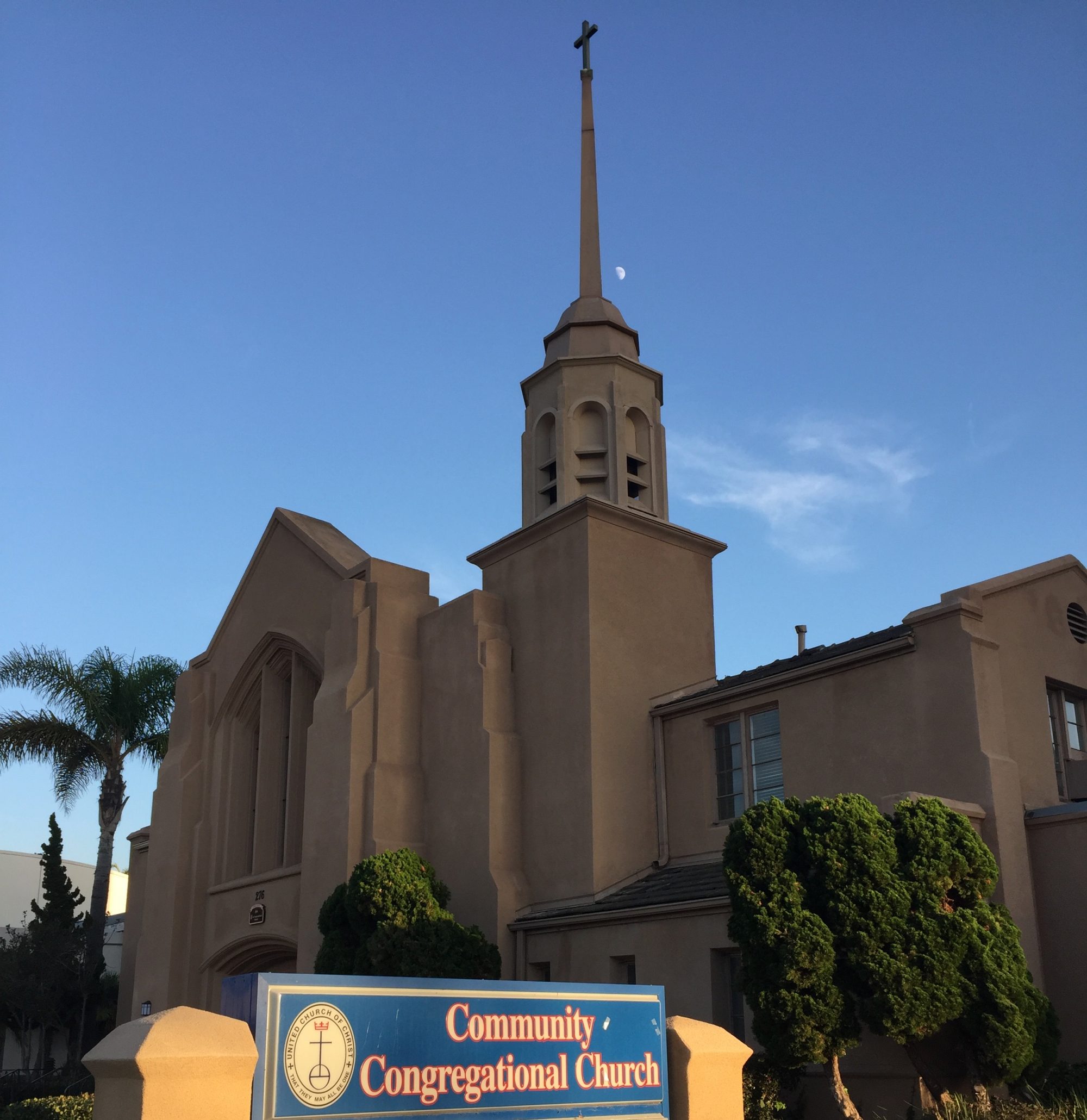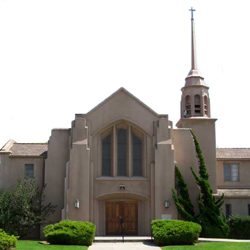“Harvest Time”
A meditation based on Mark 4:26-34
June 17, 2018
Community Congregational Church of Chula Vista
Dr. Sharon R. Graff
* * * * *
We, in the 21st century, tend to be people of production! We focus on bottom lines in budget reports, we seek detailed evaluations of actual events, we wait for final scores in sports match-ups, etc. etc. We like producing. Accomplishing. Finishing a project. Long ago, my sister and I—she a school teacher and me a minister—mused that for two people who have such strong needs for closure, how in the world did we end up in work that has little actual completion?!
Yet, the work of ministry, the work of the Gospel—the work all of you do on a daily basis—is much more about process than about production. To be sure, the church light bill needs to be paid on time, and there are repeating monthly events (like the beautiful Women’s Fellowship Tea this past week) events that come and go on the calendar. Projects. Accomplishments. Time-specific aspects of church life. Yet, listen closely to how people around here talk about such aspects and you’ll notice that the primary interest is in how the relationships swirled through an event…in other words, when it comes to being church, the process seems more significant than the product.
The same is true when Jesus teaches the crowds on the hillside in today’s story and he compares the reign of God with the way a seed grows; that growth is a hidden and mysterious process. Jesus says—and you can almost see him pick up a handful of seeds for effect—“the kingdom of God,” he says, “is like a bunch of seeds scattered on the ground that take root and grow under the watchful eye of the landowner…” Jesus goes on. “The kingdom of God is like a tiny mustard seed that is planted and grows into a bush big enough to provide shelter and home for the birds…” These agricultural images are repeated in other places in scripture,
where Jesus talks about the kingdom of God, the reign of God as more process than product.
The parables we read today, however, are more than just good stories, more than simple useful illustrations to make things clearer. Parables make us think, and think hard. In our day, we tend to think in logical and rational ways, perhaps using the left side of our brain more than the right. In contrast, parables exercise our right brains more, inviting our imagination to engage with our spirituality. As we seek a deeper understanding and experience of the reign of God about which Jesus speaks, wouldn’t it surprise us if that reign of God has much more to do with the right brain than we have previously understood?
I remember years ago, preaching a sermon on the kingdom of God. And, as often happens, my gestures became more and more dramatic. As I said the words, “Jesus teaches that the kingdom of God is at hand”—my own arm flung out in front of me, and I stopped up short. Words aligned with gesture. And in that moment, my eyes were opened to the truth that the kingdom of God is not some destination vacation spot for the good and the upright to go at the end of their earthly lives. That’s not what Jesus is talking about when he talks about the reign of God. The kingdom of God is right here. Right now. At hand. Literally. The kingdom of God of which Jesus teaches in this reading from Mark is an ongoing discovery of God’s presence and of God’s purposes in each and every one of our lives. And, spoiler alert: awareness of that reign of God “at hand” requires more of our imagination than our logic, although both are helpful!
Now let’s bring this message out of the clouds of imagination and into the tangible grasp of our everyday lives. Today is Fathers Day. And this congregation is blessed with a father figure in the person of Pastor Jim Donahoo. Patiently, Jim listens to our concerns. Joyfully, he celebrates our accomplishments. Prayerfully, he responds and directs both our joys and our concerns to the One being who can truly address them all, One God, One Father, One Mother of us all. This is the kingdom of God in action, through Pastor Jim. For the kingdom of God is not destination, it is discovery of your growing relationship with the Divine. And in his quiet, kind, compassionate, consistent and faithful way, Pastor Jim lives that kingdom in his relationships with each one of us. I delight in telling the story of Pastor Freeman asking Jim, then in his 80s, to come on staff to work with the elders! Fast forward 20 years—Jim was then 100 years old—and he was telling his own doctor he had to be released from the hospital so he could get back to work! With Jim as a model of the persistence and presence of the kingdom of God, we could make our own parable this morning: the kingdom of God is like Pastor Jim rising 5 days out of 7 and being present in and for this church.
Further, if we think about our own good good fathers—our own dads or, perhaps, other male figures from whom we’ve learned and grown—we can see more and more parables that show us the kingdom of God. If you were creating your own parable about the kingdom of God—the reign of God as you see it—using your father or another father figure as the central character—what might you say? Think about that for a moment.
But there is more… Jesus may have been very intentional about using the little mustard seed as a model for the kingdom. It seems that mustard is not only not a sweet little image, it’s not even a neutral image. Jesus’ hearers would have been offended by his reference to mustard, because it was a ritual weed that they would never be caught planting. Mustard was invasive, chaotic, uncontrollable and of no value in any respectable garden. One scholar describes mustard as “an offense against Torah observance in a chaotic world.” Yikes!
The way Jesus talks about the shrub that grows from the tiny mustard seed may have reminded Jesus’ listeners of the great cedars of Lebanon in the Hebrew Scriptures: Ezekiel 17:22-24 speaks so beautifully of God taking a sprig from a mighty cedar, and planting it high on a
mountain so that it can produce fruit & become a home in its branches for birds of every kind.
As Jesus uses these same words from the Hebrew scriptures describing majestic cedar trees, uses these words instead to talk about an invasive weed, it gives our imaginations pause.
Maybe Jesus is saying that the kingdom of God appears in surprising, even shocking guises. Maybe Jesus is teaching that the reign of God may be found in unlikely places and unexpected people. Maybe Jesus is saying, jettison your expectations about the kingdom, clean the slate of your mind, so that you can receive the kingdom of God when it appears in whatever appearance. Maybe Jesus is really saying, not only that the kingdom of God grows from small insignificant acts into life-altering events, but also that the reign of God is truly like a pesky plant in that it is tenacious.
And speaking of tenacious, we are coming to the end of the season of graduations, tenacious events for parents and graduates alike! A few days ago, John and I attended the high school graduation of our honorary granddaughter Samantha. She was in a graduating class of over 600 students, so as you can imagine, there were countless repetitions of “Pomp and Circumstance” and the large football stadium was filled to the brim with parents, grandparents, other family and friends. We were alike: all waiting, anticipating, listening carefully for our special person’s name to be called. With each name, came the explosion of hoorays, the confetti, the clapping and cheering, as together we all celebrated. That spirit of celebration was contagious. Such is the kingdom of God. More process than product. More discovery than destination. And, in the case of the mustard seed…more out of control enthusiasm than contained!
Barbara Brown Taylor, a wonderful preacher and teacher in our day, talks about the “agricultural grace” we see in today’s biblical passage. Gently, she reminds us of our anxiety amid uncertainty, as we live now “between the planting and the harvest.” WE are in process, not yet produced. Her sermon on this passage lists some of the symptoms of our anxiety, including perfectionism, driven-ness, moral outrage, restlessness, dread of being alone, and estrangement from God. Barbara Brown Taylor claims that anxiety is “an occupational hazard of being a finite creature in a universe of infinite possibilities” and she suggests that we repent of our belief that we must work out our own salvation, on the one hand, and that, on the other hand, we are doomed to fail at that very task.
You’ve seen that penchant in yourself. The inner voice of it sounds something like this: “If only I take on one more church commitment, if only I help one more friend, if only I sign one more petition or march in one more protest or or or…and then the kingdom of God will be clearer to me.” Sadly, we try to take on our own salvation, says Barbara Brown Taylor, then beat ourselves when we fail. When that sort of anxiety is present, then what is absent “is faith…faith that God will be God, [faith] that the automatic earth will yield its fruit, [faith] that life can be trusted.” Not people. Not presidents or premiers or prime ministers. But God. Life. These deserve our trust.
The antidote to anxiety, then, is courage, courage that we choose over and over again, every day we awaken…and from that courage, because of that courage, with that courage, we scatter our seeds. And we trust that some will actually root and grow! Friends, that is what it means, in a nutshell, to be church in the 21st century. There are no guarantees. As there has always been, there are many things that may press down our spirits: there is war and hatred, prejudice and injustice, hunger and violence, 1500 children separated from their parents and held in despicable conditions throughout this nation. Yes, there are many things each day that contrive to press our spirits into the ground. And when these things do, and when because we are pressed to the ground and the only direction we can look is up, remember, little seeds, it is in the ground where God does some of God’s best work. In the mysterious, often hidden process of growth, God is present with us and for us and through us. Jesus teaches there is daily invitation to trust that God has this. God has you. God has all our backs and is always working for good.
Amen and Blessed Be

